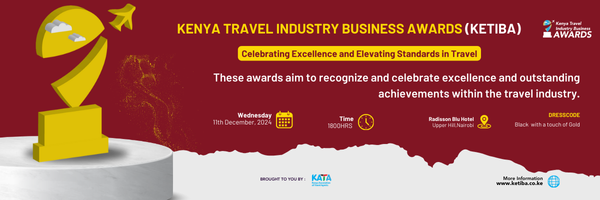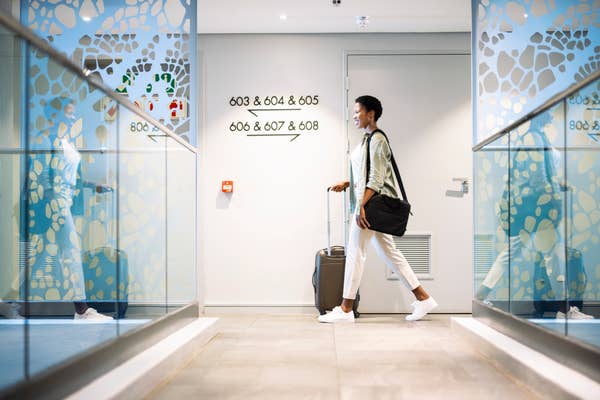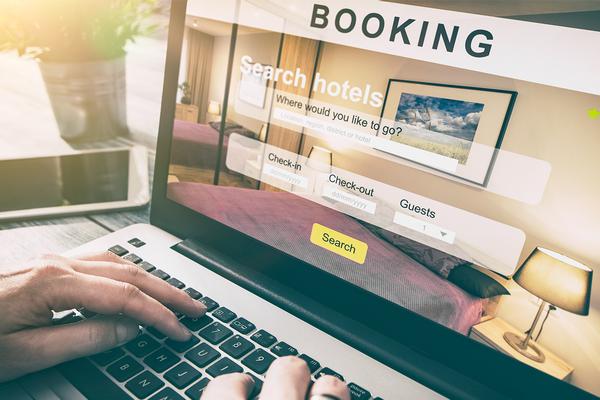If you’re looking for a place to stay on your upcoming trip, avoid making these mistakes when booking.

by Caroline Bologna HuffPost Writer

When you plan a vacation, there are only so many flight options to choose from. Booking a hotel, however, can be a much more overwhelming experience.

Big cities, famous beaches and other popular tourist destinations boast a wide variety of accommodations: low-budget chains, quirky boutique hotels and luxury resorts. Even once you decide which vibe is for you, you’ll likely find many choices that match your vision. And there are countless factors to weigh as you select your hotel, room type and more.
“People often underestimate how much the actual hotel experience can add to their trip,” said Angela Marini, a travel agent with Fora. “The hotel is more than just a place to sleep ― it’s a key part of the overall travel experience. Whether it’s enjoying the amenities, relaxing in a comfortable room or soaking in the ambiance, your hotel choice can make or break a trip.”
To guide travelers through the selection process, HuffPost asked Marini and other travel advisers to share the common mistakes people make when booking a hotel — and why they try to avoid these errors.
They don’t choose nonrefundable rates.

“I never book the nonrefundable rate unless I’m 100% sure of my plans,” said Brianna Glenn, CEO and travel adviser at Milk + Honey Travels. “Flexibility is crucial in travel, and plans can change unexpectedly. I prioritize refundable or flexible rates, even if they cost slightly more, to avoid losing money if I need to adjust my stay.”
Even if you have every intention of sticking with your plans, you might deal with unexpected flight delays or cancellations that affect your ability to reach the hotel you booked. If you choose a fully or partially refundable option, you can at least get some of your money back when there’s a last-minute change.
“I never book without checking the cancellation policy,” said Fora travel adviser Ronit Margolis. “I prefer flexibility, especially when travel dates aren’t set in stone. If there is a strict no-cancellation policy, I purchase trip insurance.”
They don’t book without talking to someone at the hotel.

“As a travel expert, I never forgo the opportunity to speak with someone at the hotel when booking a stay for myself,” said Kareem George, founder of Culture Traveler. “I have found this to prevent unpleasant surprises, such as discovering certain amenities are not available, the presence of construction, arriving to find that a large group has taken over much of the property, etc.”
He added that calling the hotel also gives him the opportunity to learn about any special events during his stay and to request a complimentary upgrade.
Fora travel adviser Amna Ismail agreed with giving hotels a call before booking.
“If I have specific preferences, like a high floor or early check-in, I always call the hotel directly to confirm availability instead of relying on notes in the booking and always follow up with an email,” Ismail said.
They don’t forget to keep monitoring the price after booking.

“I never ‘set it and forget it’ after booking,” said Michael DeLucca, a travel agent and founder of Otsy. “I prioritize rooms with flexible cancellation policies, especially when booking far in advance. I then manually check rates weekly or use a rate-monitoring tool like Pruvo, which alerts me to price drops. This allows me to cancel and rebook at lower rates.”
He said he often saves 10-30% as hotel prices fluctuate and new promotions arise.
“This approach ensures I get the best possible price without falling victim to price manipulation tactics or losing flexibility in my travel plans,” DeLucca added.
They don’t overlook the location.

“I would never book a hotel in a bad location for a better price,” said Jonathan Alder, founder of Jonathan’s Travels. “Location always comes first, as it can make or break the success of your trip.”
Consider the sites and restaurants you plan to visit during your trip. How long will it take to get from your accommodations to your activities? Is there good public transportation? Are there specific neighborhoods you want to explore in depth?
“It can be the best hotel, but in the worst location,” said Chirag Panchal, a Fora travel adviser. “It is important to check that the hotel is in a safe area, convenient to the places I plan to visit while I am staying there.”
They don’t book without checking the reviews.

“I never skip the reviews,” said Fora adviser Caroline Bernthal. “As an adviser, I know tons of properties across the world. If someone requests a property I don’t know, I immediately head for the reviews. I also always check to see if they are members of any programs I know vet properties well, such as Relais and Château and SLH.”
Hotel reviews from previous guests often include helpful information about noise levels, service quality, and more. But remember to do a thorough analysis for the full picture. Be on the lookout for common patterns, but take certain criticisms with a grain of salt.
“Never fully rely on the really good and really bad reviews online,” said Fora adviser Caroline Weilert. “There is so much online clutter, and usually, when people take time to write reviews, they are for extreme points of view. I skim those but toss them out. It’s the balanced reviews that provide the most insight to inform my own decision-making on where to stay.”
They don’t rely on the hotel-provided photos.

“I never rely only on hotel-provided photos,” Margolis said. “Hotel photos can be misleading or outdated.”
Instead, she looks for reviews for photos taken by guests to get a more accurate sense of room size, cleanliness and overall condition.
“With social media these days, you can look for the hotel tags and see previous guests’ photos to get a more accurate depiction,” Margolis added.
They don’t pick the cheapest room.

“I avoid booking the cheapest room category unless I’ve reviewed its size and amenities,” Ismail said. “Sometimes spending a little more for a higher category can significantly enhance the overall experience and get you additional perks, which actually make it a better deal.”
If you know a beach view helps you better relax on your hard-earned vacation, consider making this small splurge.
Lower rates also might not come with a bed type guarantee, which means arriving to either two doubles or one king. Families traveling with children shouldn’t take this gamble.
“This can be cheaper, but you’re leaving it up to the hotel to place you in whatever room type they have available,” said Rena Shah, the head of lodging and experiences for Chase Travel. “So unless you’re traveling solo, I would avoid this. Don’t book a room without confirming the bedding type.”
They don’t choose a hotel based on star rating.

“Never book solely based on star ratings,” Glenn said. “Star ratings don’t always reflect the true guest experience. A five-star hotel may not always align with personal preferences for boutique or intimate accommodations, and these star ratings also mean very different things in different parts of the world.”
She said she instead considers the hotel’s atmosphere, location, and amenities to identify which option matches her travel style and purpose of the trip.
They don’t use third-party bookers.

“I never book through a third-party channel,” Panchal said. “There is nothing worse than showing up to a hotel to check in only to learn that they have been oversold, and most likely it’s the third-party bookings that will be walked first.”
“Third-party online travel agency rates are also ineligible for extra perks and hotel loyalty points, so although they may be slightly discounted, the lack of additional amenities often outweigh booking through those channels,” he added.
That means you’re more likely to get an upgrade or have a specific room request honored if you book directly with the hotel.
“I have also noted that the OTA room blocks are often the less desirable inventory of the hotel,” George said.
That doesn’t mean you can’t use these services to your advantage.
“I start by checking rates on popular third-party OTAs, but I never finalize my booking there,” DeLucca said. “After identifying the best rate using VPN or incognito browsing mode, I call the hotel directly. Often, hotels are willing to match or beat the third-party rate to avoid paying commission fees and secure the booking directly.”
They don’t consider only the busiest travel seasons.

“Traveling between Christmas and New Year’s is often one of the busiest and most expensive times of the year,” Marini said. “Everything from flights to hotels, restaurants and activities tends to come at a premium. You pay more and get less.”
When she books a hotel room for herself, she tries to open her search up to “shoulder seasons,” which are often the best time to visit a destination in terms of hotel rates, crowds and weather.
They don’t book without pursuing preferred rate options.

“I make sure to never book a regular room rate,” Panchal said. “As a travel adviser who is a preferred partner for most luxury hotels around the world, I always book through a preferred partner rate so that I don’t miss out on potential upgrades, complimentary breakfast, early check-in, late checkout, and other exclusive amenities.”
He believes travelers are “leaving money on the table” when they don’t consider booking through an agent with a direct connection to the hotel.
Alder agreed, saying, “I would never book a hotel without considering using a travel agent, as they get you better amenities at no additional hotel cost to you.”
“Plus, your agent knows the best properties and destinations for your trip,” he added. “Relying solely on online searches can be a disadvantage for consumers.”
Source: BuzzFeed





